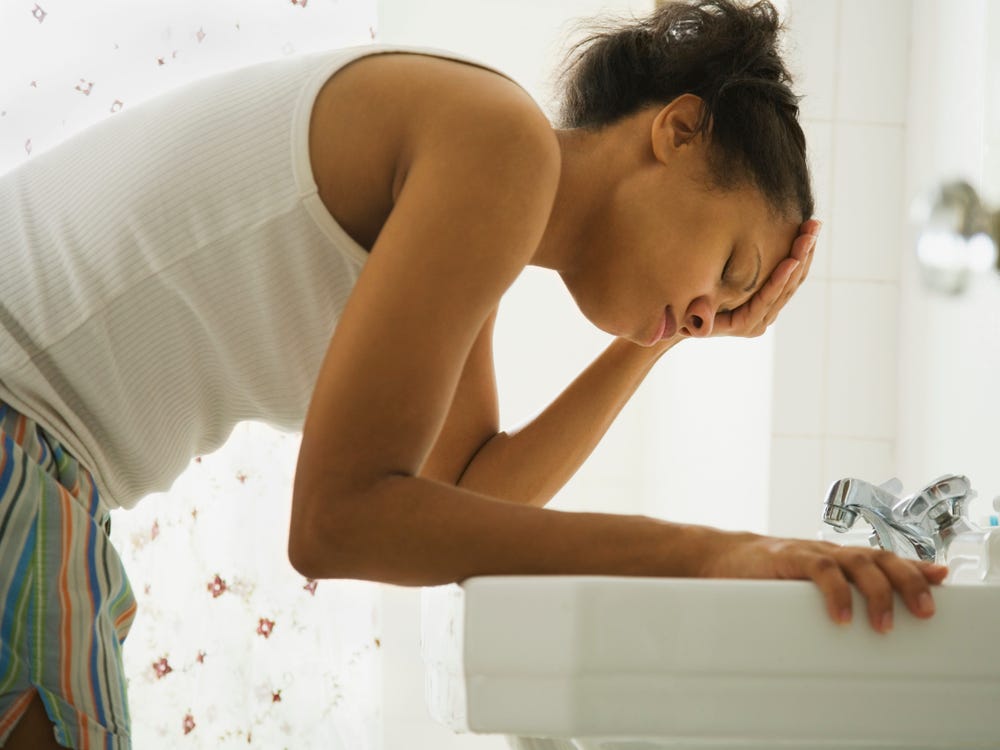A migraine is a neurological disease that causes nausea, dizziness, fatigue, and increased sensitivity to sound, light, and smell.
If you suspect you have migraines, see your primary care physician or a specialist who can properly diagnose and rule out other causes.
“The first step is to get your headache evaluated and diagnosed,” says board-certified neurologist Thomas Pitts of Hudson Medical + Wellness in New York City.
Then you can take steps to find relief. Here are some home remedies for migraine symptoms.

Natural migraine cures
Migraine remedies can help you find relief and prevent future migraines. Adding magnesium to your diet, taking vitamin B2, doing yoga, and sleeping enough are all effective home remedies for relieving pain and preventing future episodes.
1. Magnesium
According to the American Migraine Foundation, taking 400-500 milligrams of magnesium per day can help prevent migraines. The supplement may prevent sensory disturbances such as aura, light sensitivity, and noise sensitivity. If you are or plan to become pregnant, keep the dose at 400 mg. The most common magnesium side effects are diarrhea and abdominal cramps.
2. Vitamin B2
Comparing 400 mg of vitamin B2 daily to sodium valproate reduced the frequency and severity of migraines with minimal side effects. Because current studies are limited and small, more research is required to fully understand how vitamin B2 prevents migraines.
3. Caffeinated beverages
Caffeine may help treat migraines, some research shows. A 2019 review found that chronic caffeine intake seemed to increase the risk of migraines. The Cleveland Clinic recommends limiting daily caffeine intake to 150-200 milligrams.
Caffeine may help migraines, but more research is needed to determine this. Consult your doctor if this treatment is right for you.
4. Cold or hot remedies
The Mayo Clinic recommends applying heat or cold to migraines. A 2013 study found that a frozen neck wrap significantly reduced pain when applied early in a migraine.
Use a heating pad on your head or neck to help relax your muscles, relieving tension and migraine symptoms.
5. Yoga is a form of exercise.
According to a 2015 study, yoga may help reduce migraine frequency, duration, and severity.
6. There is no light
During a migraine, the Mayo Clinic recommends a dark, quiet environment. If you can, sleep.
7. Workout
The Mayo Clinic says regular exercise can help prevent migraines by reducing anxiety, depression, and obesity. Consult your doctor about the best exercises to do and how often.
8. Sleeping
A lack of sleep can cause a migraine attack. Going to bed and waking up at the same time each day contributes to good sleep quality.
9. Mint essential oil
A 2010 study found peppermint’s menthol to be a safe and effective treatment for migraines. Apply it to the temples and forehead when a migraine starts.
10. Melatonin
Melatonin is a hormone that helps regulate sleep and wakefulness. A 2010 study found that migraine patients had low melatonin levels. A melatonin supplement of up to 3 mg per day may help prevent migraines.
Migraine onset
Keep a migraine journal to track your triggers and avoid them. When you get a migraine, note the date, time, activity, symptoms, food eaten, and sleep patterns.
The Mayo Clinic lists these common migraine triggers:
- Pregnancies
- Menopause
- Excessive caffeine consumption
- Intense lights
- The boom
- Smells
- Sleep deprivation due to jet lag
- Arduous physical activity, sexual activity, weather
- Oral contraceptives, nitroglycerin, and vasodilators
- Not consuming
- Processed foods.
- Sourdough
- MSG and aspartame
When to see a migraine specialist
Pitts recommends seeing a doctor if you have a migraine:
- Intensity or quality changes.
- It has a numbing effect.
- Has vertigo.
- Causes mental issues.
- Strength issues in the arms or legs.
- Worsens when you lie down or sit up, or improves with movement.
If you have these symptoms and migraines, you should see a neurologist to rule out something more serious.
According to Jessica Ailani, neurologist and director of the MedStar Georgetown Headache Center at MedStar Georgetown University Hospital in Washington, DC, aspirin, acetaminophen, naproxen, and ibuprofen can help relieve mild to moderate migraines. A little trial and error can help you find the best fit.
Home migraine remedies don’t always work. Pitts recommends some great migraine remedies. The American Migraine Foundation recommends triptans like Sumatriptan, Zolmitriptan, and Rizatriptan for migraines. When these drugs fail, doctors turn to ergot alkaloids like Migrinal and Ergomar.
Nerve blockers, botox and supplement infusions are other medical treatments. If natural remedies don’t work, see a doctor. Together, you should find a cure.
Observation
Home remedies can often control or prevent migraines.
Pitts recommends good sleep habits, regular exercise, and daily magnesium and vitamin B2 supplements to treat migraines.
See your primary care provider for a preventative screening once a year, says Pitts.

